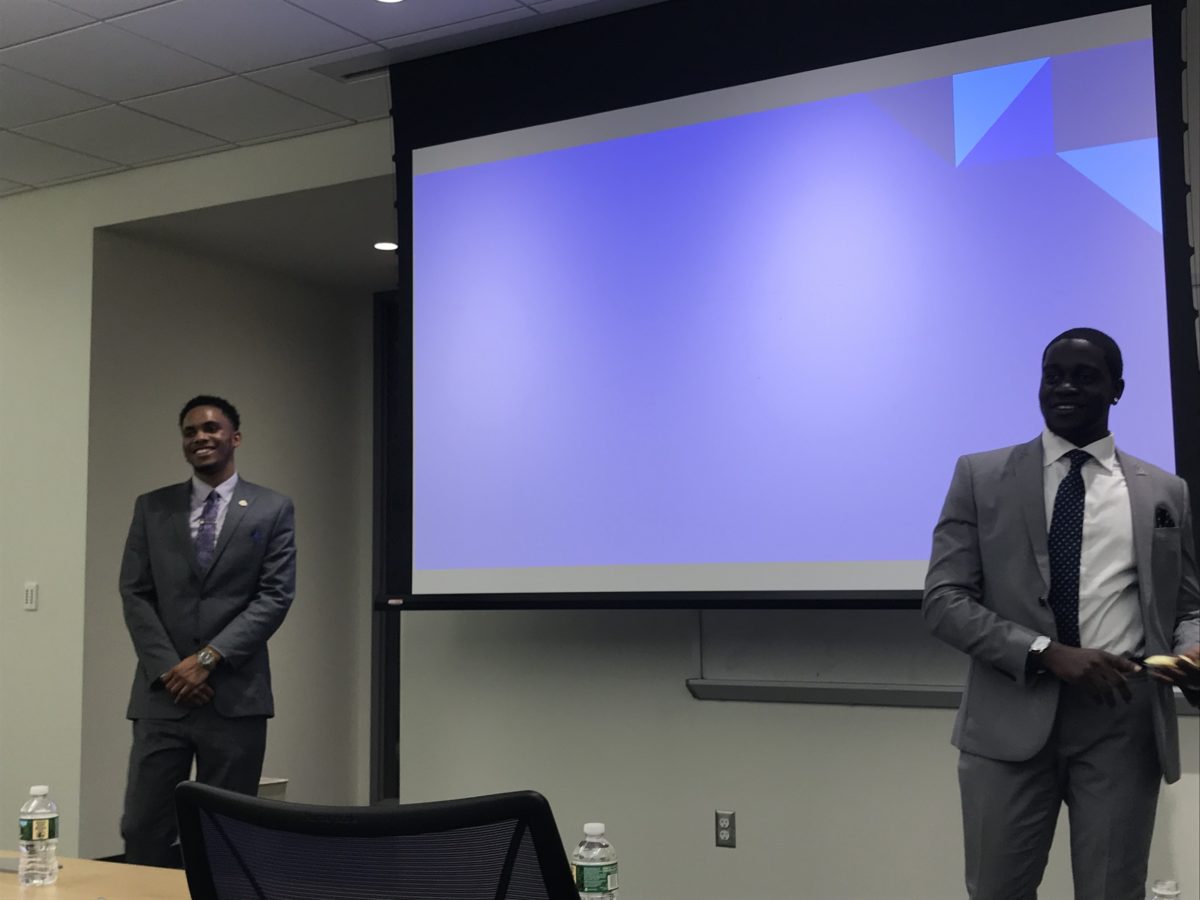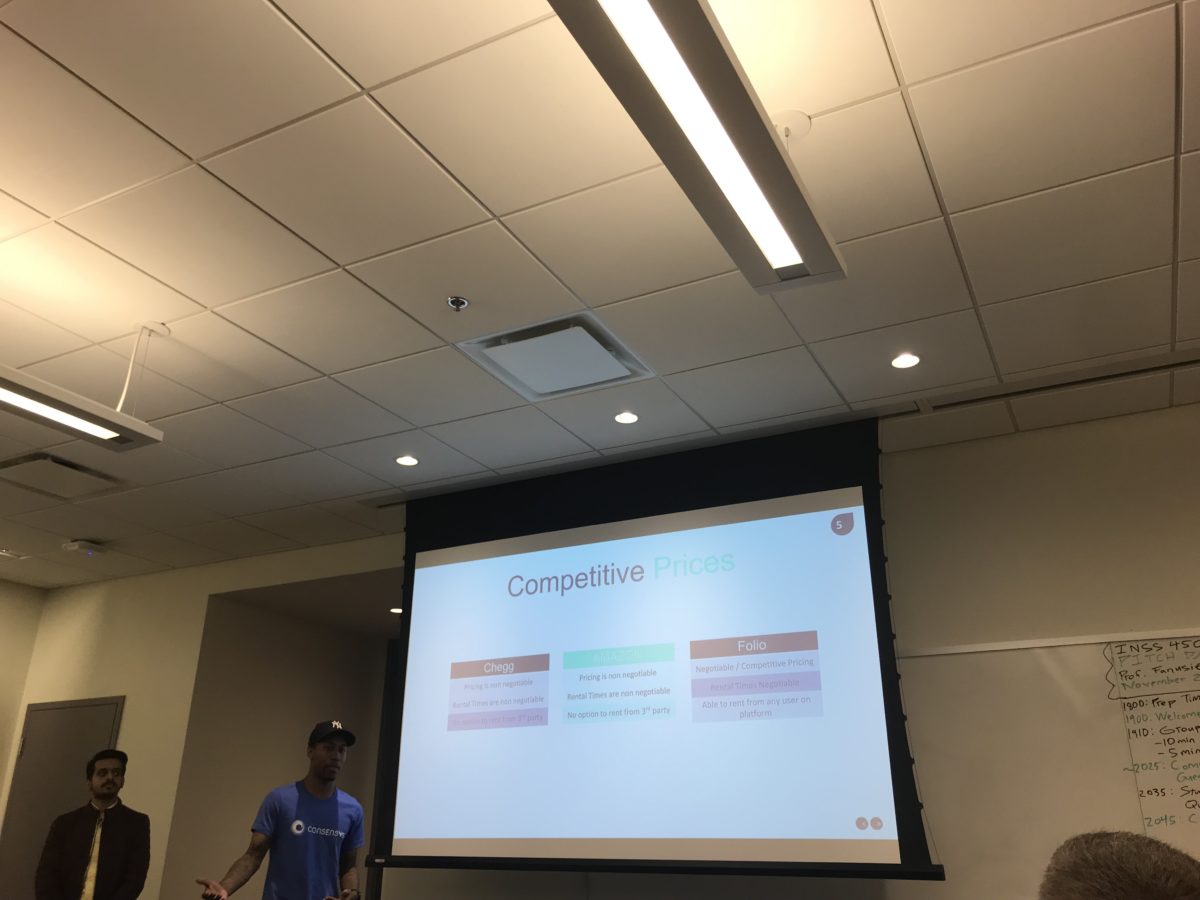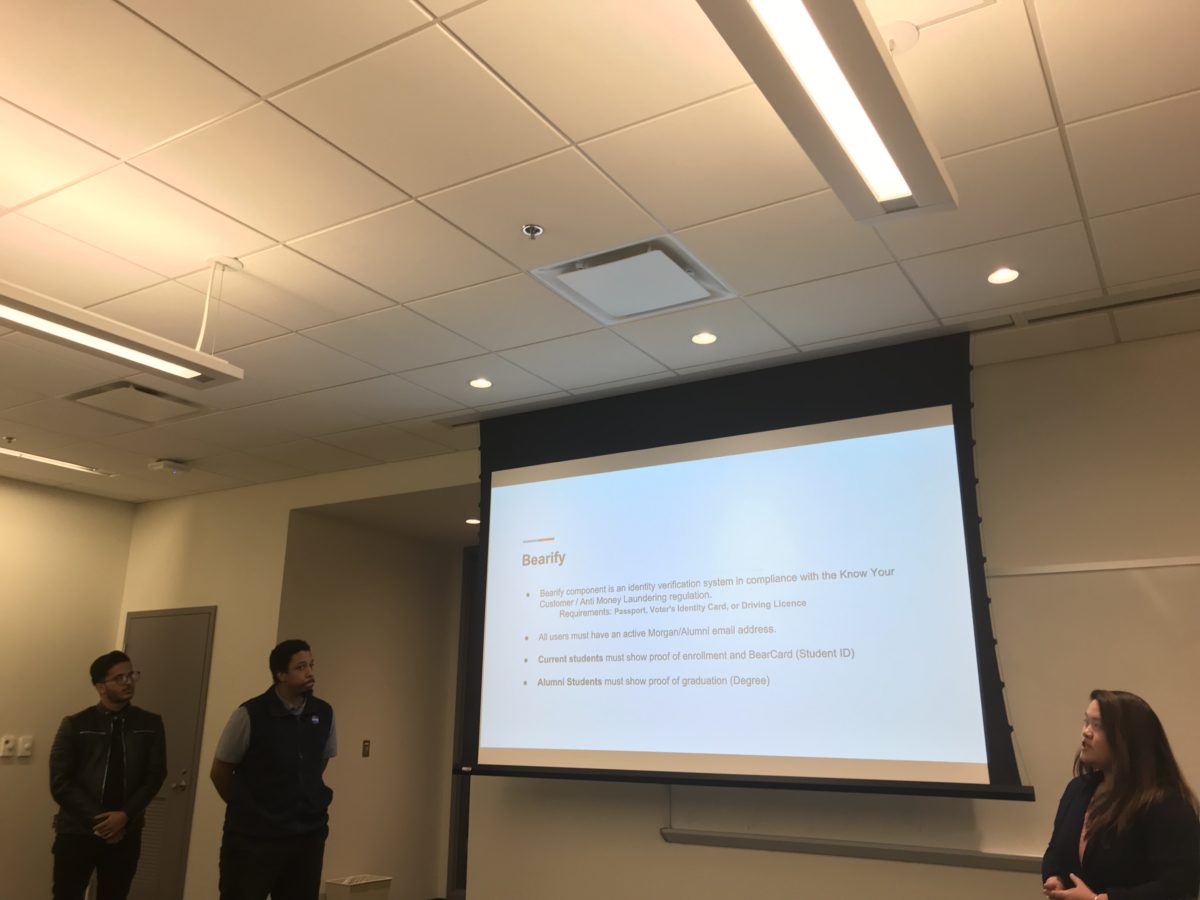On Wednesday nights during the fall semester, students at Morgan State University got lessons on cryptocurrency from team members at New York–based ConsenSys , purchased ether and devised dApps.
It was all part of the first-ever blockchain course held at the Baltimore HBCU. The course brought together academia and industry, as a final pitch event to close out the class last week showed. Along with team members from ConsenSys, a representative from payment protocol Ripple sat alongside university leaders such as Associate Dean Ali Emdad of Morgan’s School of Business and Management. Growing out of interest through a blockchain club and panel discussion, Baltimore technologist Yaya Fanusie proposed the course to Morgan State administrators, who welcomed the chance to allow students to get experience with technology that holds promise to shape future workforces, Emdad said.
The course was offered at the business school, which makes sense given blockchain’s tie-ins with fintech. Yet while cryptocurrency may be an area that financial experts are focusing on, it was the every day uses that students eventually landed on.
At a final pitch presentation held last week, Fanusie, who served as the course’s professor, pointed out that exploring use cases for the technology was an important facet to the technology’s development. With the technology still in a very nascent phase, he challenged students to think about solutions that are possible using existing tools like cryptocurrency and smart contracts.
It’s not only a question of software developers creating solutions, but “the key to adoption will come from folks figuring out, ‘How should I use it?'” Fanusie said.
For their projects, students devised solutions that addressed problems they face on campus. The students spelled out what practical use their decentralized apps, or dApps, would address, blockchain tools they would use, as well as potential regulatory challenges they would face. Many of the apps involved bringing a peer-to-peer model to some of the technologies we’ve seen in the on-demand economy. The approach means less influence from a company, and a more direct interaction between the two parties involved in a transaction.
Here’s an overview of what they want to start:
Invest N Me
Seeking to open up new ways to borrow money for college, this team set out to create a solution that would help students to borrow from alumni using cryptocurrency. For alumni, it would represent a way to give back to the school that directly supports students. The team includes Ernest Buren, Devin Burke, Ahmad Abdulmajeed and Irene Camunag.
Bear Cuisine
Dining halls close at 9 p.m. on campus, but this team wants to create a way for late-night food. The dApp would engage students to cook for each other, and pick up some money along the way. Blockchain tools would make transactions easier, and allow funds to be held in escrow until meals are completed. The team includes Solomon Sterling, Rashae Hilson, Sean Osborne and Qadir Rhoe.

Arper
Ridesharing on campus gets a peer-to-peer look through this dApp. The idea is to allow students to have a more direct route than existing campus transportation provides, and allow students who have cars to make money during a daily commute. Plus, the company would take a lower percentage of the fee than existing ridesharing companies. The team includes Saxfield Chatmon, Tunji Ogiefo , Juwan Whitehead and Kiley Williams.
Parallel
This dApp looks to provide a new approach to campus housing, connecting prospective renters directly with homeowners. The solution also includes matching tools, where roommates could identify each other based on preferences. Like Arper, the team seeks to collect lower fees than existing companies. The team includes Bolaji Ajayi Abdulaziz Altuwaijri, Oluwaseun (Faith) Onaolapo and Brian Ogu.

Folio
Renting textbooks has emerged as a solution to buying books, but this team wants to take things one step further by allowing students to negotiate specific timelines for rentals and save money. The books are listed through a dApp, and utilize smart contracts. The team includes Fahad Alotaibi, Abdulrahman Alharbi, Oladapo Olawuyi and Calik Wright.







